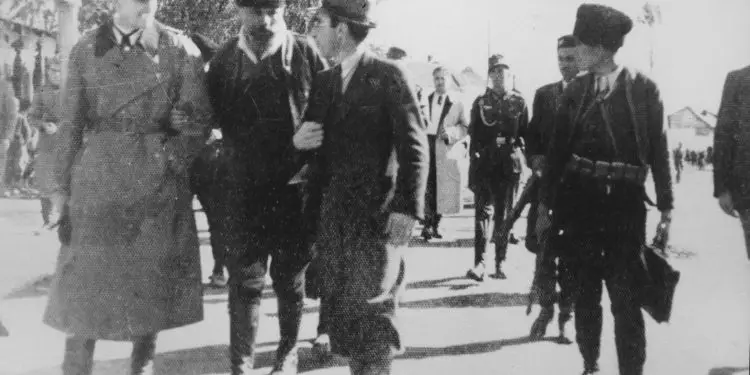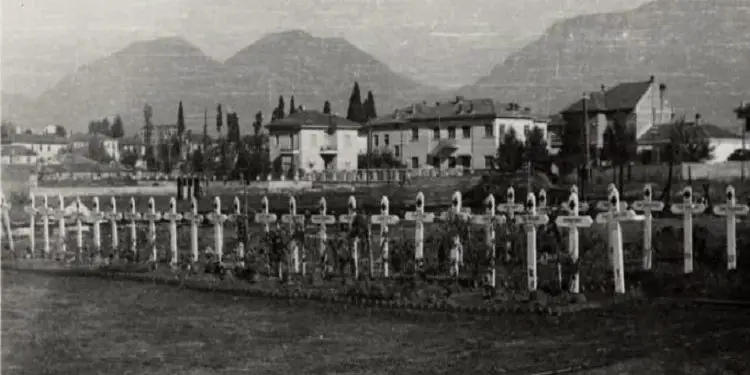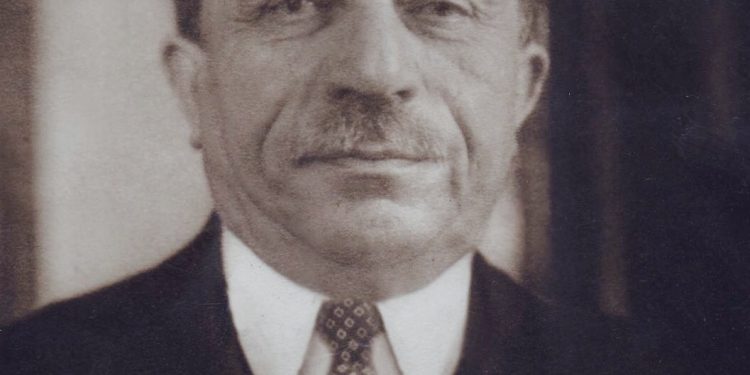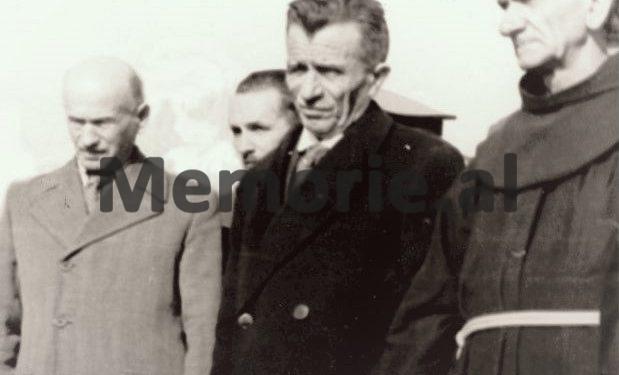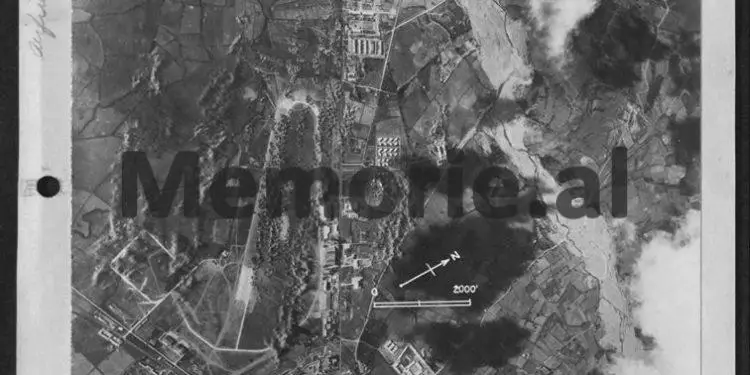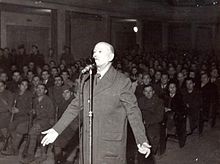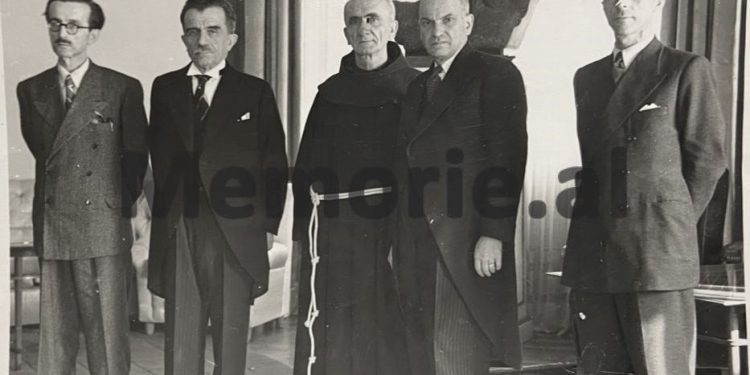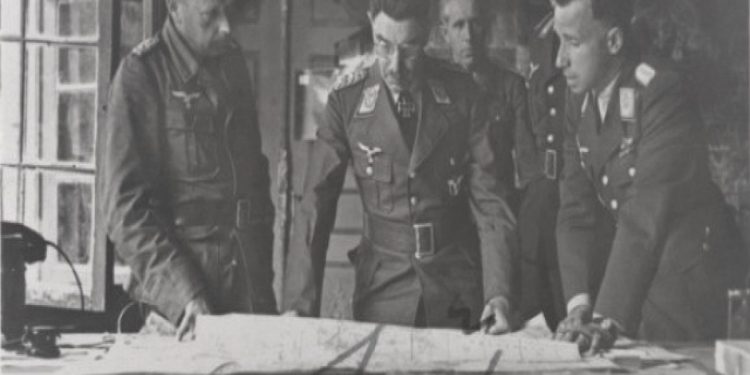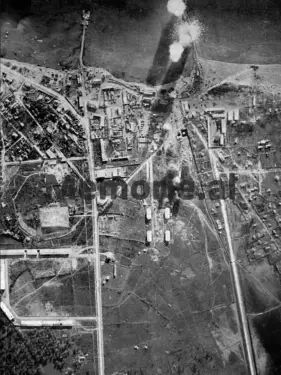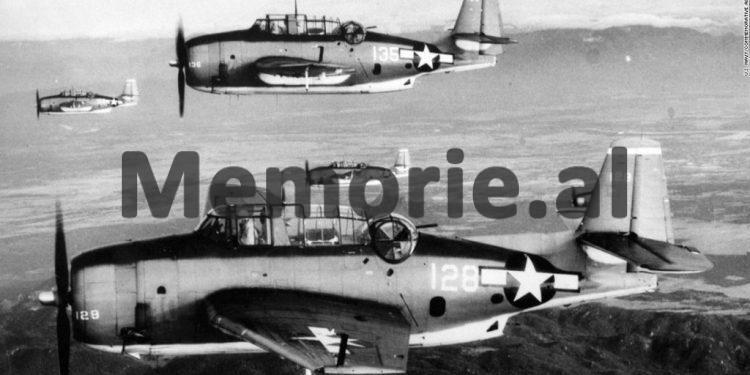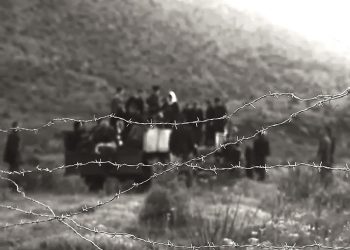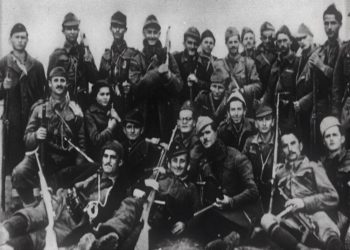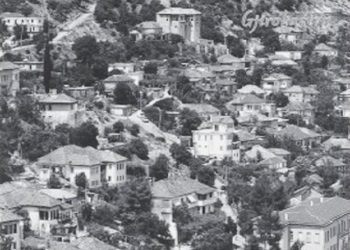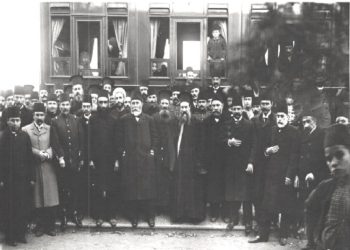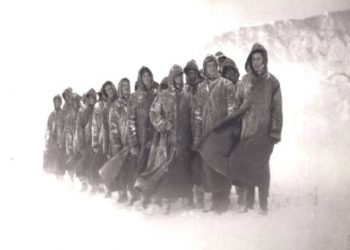Dashnor Kaloçi
Memorie.al publishes the unknown memoirs of Hermann Neubacher, the German Nazi diplomat, Hitler’s personal envoy to the Southeast Balkans, during the years 1943-1945, who, among other things, describes in detail the mission and adventure in his memoirs his Albanian, in the small country in the South of the Balkans. Neubacher published these memoirs in Germany, a few years after the end of the Second World War, summarizing them in a book, where he writes, among other things: “In my short and laconic Albanian task, there was something extraordinary. The German Foreign Minister, Ribbentrop, called me in Belgrade and informed me that: The Führer wanted to appoint me to Albania, which would be independent on its own initiative and in this regard, that the next day should I went to the XI Command of the German division, which was deployed in Elbasan “. Frashëri, Rexhep Mitrovica, Abaz Kupi, etc., in the optics of the Nazi diplomat, who served in Albania in 1943 – ’44
When at the end of August 1943, in the main residence of the Führer, Adolf Hitler, I accepted the task as “Authorizer of the Secretariat for Foreign Affairs of the Southeast Balkans”, I had not yet heard of Albania and did not know enough about it small country in Southern Europe. Victor Emmanuel still reigned there at the time, and one of his successors ruled the country. In my short and laconic Albanian task, there was something extraordinary. The German Foreign Minister, Ribbentrop, called me in Belgrade and informed me that: The Führer wanted to appoint me to Albania, which would be independent on its own initiative and in this regard, that the next day should I went to the 11th Command of the German Division, which was stationed in Elbasan “.
This is how he remembered his appointment to Albania, Hermann Neubacher, the German diplomat Hitler’s personal envoy to the Southeast Balkans during 1943 1945, who, among other things, in his memoirs describes in detail the entire mission and his Albanian adventure, in the small country in the South Balkans. Neubacher published these memoirs in Germany a few years after the end of World War II, summarizing them in a book. But how did Neubacher come to Albania, what was his task, who were the Albanian politicians he collaborated with and how does he describe their characters in his book?
Departure for Albania
After being appointed Special Envoy of the German Foreign Ministry for the Southeastern Balkans, Hermann Neubacher was informed by Foreign Minister Ribbentrop that Hitler wanted him to go on duty to Albania. In this regard, in his memoirs, Neubacher writes: “Three weeks before I arrived in Albania, I had collected some superficial data about that small country in the Southern Balkans and by that time I had been given the opportunity to know only two Albanian politicians, who immediately after the capitulation of Italy had asked me to contact them in Belgrade.
These were Xhafer Deva, who once had a political role in the Serb-administered province of Kosovo, and another Vehbi Frashëri, the son of the later Chairman of the High Council of the Albanian Regency, Mehdi bej Frashëri, a class intellectual living at the time still in a hotel in Rome, together with his daughter, Mehdien. While I was thinking about this, I left Belgrade by a special plane, where I was accompanied by a clerk, who, since he knew the Albanian language well, would continue to accompany me through Albania. It was late in the evening when I found out that in the city of Elbasan where I had to arrive; there was no airfield at all to land by plane.
It seemed too late for me to engage the automobile expedition for that problem and decided, but without notifying the Main Center, to land directly by plane in the city of Tirana, which was still under the control of Italian troops. So before my departure, a squadron of fighter jets flew in front of us as a vanguard because the enemy had positions very close to the Adriatic Sea. Directly in front of my “Henikel 111” plane, three “You 52” planes flew, with 60 soldiers of the “Brandenburg” Division (from sector Auber II), as temporary representatives of the German military force at the Tirana airport.
After a pleasant flight over the magnificent mountains, where the steep cliffs shone from the sun, we immediately saw Tirana, with its beautiful position and landscapes, with its minarets and green valleys on the horn of Dajti Mountain. “Since I did not know the place well, I ordered the plane to be brought in front of the main building of that small military and civilian airport, from which the Italian soldiers and officers came out of a narrow nursery,” recalls Neubacher, arriving by plane military at the small airport of Tirana.
Pity for the Italians
Arriving at a place that was almost unknown to Neubacher, he described it as a feeling of fear and insecurity, which came from the difficult moments the Italian army was going through, which had strained the situation and brought with it the capitulation of inevitable. In this regard, among other things, Neubacher writes: “In a state of fear I got out of the car and my black ironed diplomatic uniform, caused surprise to the military personnel who were there. When I was questioned, I was shown a bench located on the far left end of the airport, where the German personnel serving were located.
To meet us, he came by his own car, the German consul, Shlip. As we drove through the streets of Tirana, we saw thousands of armed Italian soldiers being pushed, gathered in groups that looked scared. They were lost in a place that frightened you and that resisting our former allies made no sense. They, the Italians, were captives, so the Germans had to march there to fight.
Although our car was obeyed with some kind of military salute, which also came from the gold marks I wore on my body, for those Italian soldiers I have always felt a deep regret in the heat of those events where they were involved. Slowly with our car, we arrived at the German consulate. “But when I got there, I ordered that a ‘Rosa’ be made available to Xhafer Deva, for his arrival from Kosovo to Albania, because his time had already come,” Neubacher recalls of his arrival in the Albanian capital and in the German consulate, where the Italian invading troops were still stationed.
Familiarity with the situation in Albania
As soon as Hitler’s special envoy arrived at the German consulate in Tirana, accompanied by Consul Shlip, according to the instructions received earlier, he asked to be acquainted with the situation, which the Center asked, as the German military troops that would march with long convoys to Berlin were ready to enter Albania from its southern border with Greece. In this regard, in his memoirs, Neubacher writes: “At our consulate in Tirana, I talked to Mr. Shlip and Mr. Shajger, who were there as experts in Albania and well acquainted with the language of that country, for whom the Center had me instructed to cooperate to know the situation in Albania.
Schaeger, a former Austro-Hungarian officer and general staff, had spent more than 20 years in Albania after World War I. He had become a true lexicographer in connection with the knowledge of that place, which he knew perfectly well from tribes, families, customs, and even to special persons of interest to us. At that time the situation was not so honorable, although Southern Albania was partly in the hands of the communist partisans, against whom the Italians had fought very unsuccessfully. For this reason, even before the change of allied armies, a German division was stationed in Elbasan.
The partisan forces were the inevitable opponents of our German troops, while the opposite happened with the nationalist forces of the National Front, who had gone up the mountain to fight the Italians. Those forces did not pose any great danger to us, that according to law NO.1, they as in Greece and Yugoslavia, the main enemies were the communists. The Albanians knew very well that the purpose of the march of our troops towards Albania had strong military causes, in order for us to defend ourselves from the side attacks coming to us from the threats of the Anglo-American allies on the other side of the Otranto canal. Until then, I do not remember any hostile acts of the population against the German armed forces.
In fact, the Albanian, skinned, held a reserve against the Germans, due to our tolerant attitude towards the Italians, in their aggression against Albania on April 7, 1939. Nevertheless, the successful methods of the Austro-Hungarians during the First World War were still in the good memory of the people, which had influenced the German forces to be expected to some extent well. From the National Front, we had almost no problems; they had launched a comprehensive offensive against partisan forces in the South.
Only Abaz Kupi, who was held as the successor of King Zog in Albania and for this purpose had stayed there, where there were nearly a thousand of his supporters fighting in the mountains between Tirana and Shkodra. At Kupi, there were also a number of English officers who had come on a mission to help the nationalists fight against the Italian forces. “We tried to leave the Cup alone, but he did not harass us at all,” recalls the German diplomat, the political situation in which Albania was at that time.
Efforts to form a government
One of the main tasks of the German diplomat Neubacher, for which he had come especially to Albania, was the interest and care for the formation of a government that would not bring them trouble. In this regard, Hitler’s diplomat Neubacher writes: “Berlin insisted that independence be respected in Albania, according to personal initiatives. As this order hung over our heads in the air, from moment to moment we received various news of the English landing, which I had concluded: that landing would never happen.
The Albanians, who in the time of the Romans had an experience in the affairs of the occupation: Where the strong were asked for money and weapons, while the weak that retreated, had to be robbed. This was the tradition of a small mountainous and warlike people, who had not allowed great criminals to trample and subdue it. Thus their mountains remained unexplored for thousands of years, but now one thing was unclear: Who would remain? With Italy, the Albanians had finished work, as they had disarmed it. What enthusiasm and centuries-old blessing reigned in their armed towers, especially in the country houses, and could the Germans remain there, whom the pressure of the Allies (Anglo-Americans) on the other side of the Adriatic was pushing them right? Veriut? Should Albania’s independence be declared under the sign of the German armed forces, or should the landing of the allied forces and the duel between them be expected?
Only two people, initially separated from each other, tried to create a representative National Council, which would declare Albania’s independence and retain provisional power in the country. They were Ibrahim bej Bicaku and Xhafer Deva from Mitrovica. The formation of the government was discussed day and night. Fully adhering to my “initiative”, I removed all my participation in these rather dramatic conversations and just waited. To stay away from these things and to avoid any impression that we were pushing for the formation of the government, on September 12, 1943, I left Tirana, making a few flights to Belgrade, but on September 13, I returned again in Tirana waiting for the formation of the “National Council” (Regency). On September 14, the two groups joined a Council headed by Ibrahim Bey Bicaku. There were over twenty people, all personalities and names that enjoyed respect in the country.
There Prof. Dr. Calaris, who was fluent in German, communicated to me with a perfect and temperamental speech that the “National Council” had been established and that that Council had proclaimed the independence of Albania. This was good news for me, which meant doing my best, and I could not wait to communicate it to the German Reich government. From that day I went to the National Council that was debating in the Presidency of the Government, and a day later, I returned to Belgrade. After a short stay there, I flew by plane to present the report to the Center in Berlin. “Hitler, who had great sympathy for this small and romantic country in Southern Europe, was very pleased with the conclusion of the talks for the formation of the Albanian government”, recalls the German diplomat Neubacher, regarding the realization of his first mission in Albania./Memorie.al
The next issue follows




